Climbing off the Streets, Part 4: How Hard Can It Be to Get an ID?
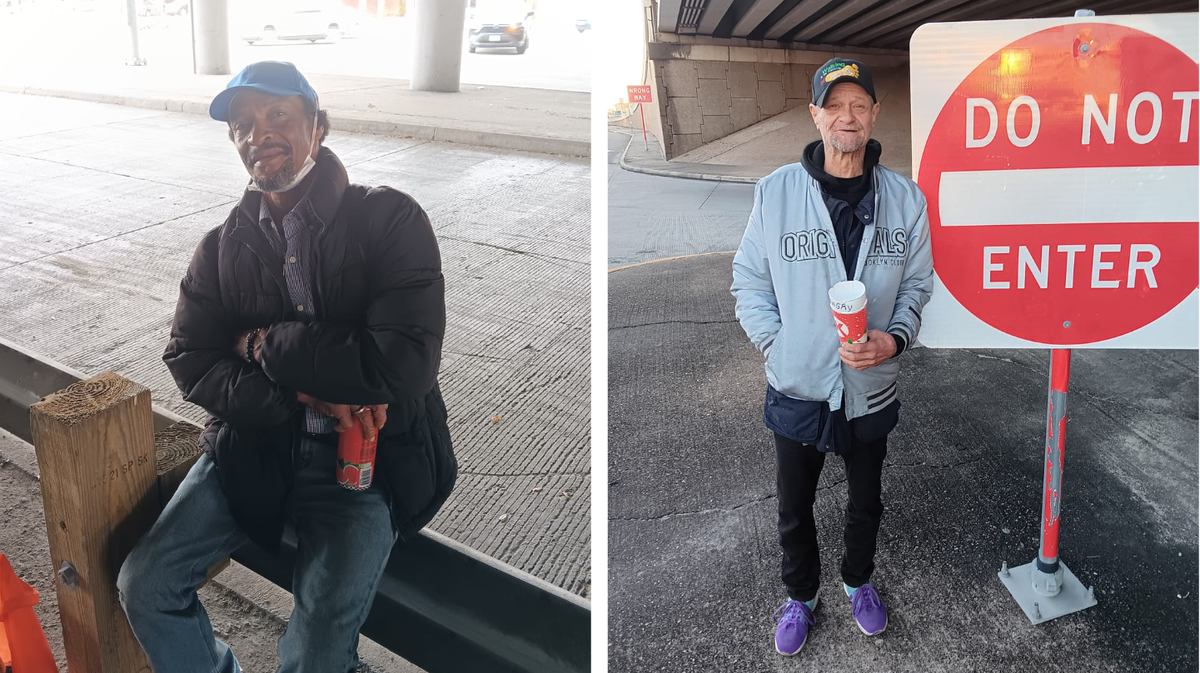
"I'm never gonna get a license. I knew it."
Dale Malone bends forward in the plastic chair, hands flat on the edge of the DPS desk. The black-haired woman behind it has just told him that management wouldn’t accept his METRO disability ID card as proof of identity, even though the blonde woman at the front door had said it would count.
“I’m gonna give you a list of things that we can accept.” The woman pushes forward a piece of paper and highlights two columns. Since Dale is just trying to get a replacement license, she says he only needs one document from the list, like a voter registration card, W-2, or medical record.
Dale isn’t having it. “They won’t give me none of that without a driver’s license.”
As we walk out of the cubicle, he’s talking about what he will do to the man who stole his old driver’s license. Without a replacement ID, Dale can’t get a job, an apartment, a bank account, or disability benefits for the memory loss caused by his multiple strokes. Essentially, he’s dead to society and stuck on the streets.
His friend Leroy Conner joins us, beaming. He proudly shows off the paper copy of his brand new Texas ID, the first step in his goal to get housing. I high five him.
As we walk out the DPS door, Leroy tries to calm down his comrade. “Can’t give up, Dale.”
“Why not?” Dale stresses every word. “Why not?” He says he might as well blow the money he collected this morning to pay for his license.
Leroy asks Dale where his birth certificate is.
Dale muses for a moment. He thinks his sister, who lives in Sugar Land, may still have a copy of his birth certificate. That’s also an accepted proof of identification.
But there’s a problem: he doesn’t remember her phone number—or her address. He also says their relationship has been distant.
“I’m just frustrated and confused and upset now,” he adds. “I’m not gonna be good to nobody right now.”
“I can’t tell you how many times I’ve been that to that point, Dale,” says Leroy.
Dale frowns. “If this is what you call life, man, I don’t want no part of it.”
“Don’t stress us out," says Leroy. "You know we’re tryin’ to help you.”
After much persuasion, Dale decides it’s worth a shot to try to get his birth certificate from his sister. He thinks he can remember the way to her house if we follow the bus route he usually takes to the outskirts of Houston, near her home. That requires driving back into Houston first.
The paper list from the DPS also mentions that an insurance card will work as proof of identification. Dale says he has insurance, but he lost his card and hasn’t had much luck explaining his situation to his insurer over the phone. Anyway, he had lost his phone and been without one for months—but he just bought another one a few days ago.
It could take a long time to get his insurance card if it has to be mailed. But perhaps it’s worth a try?
Dale heads back into the DPS to ask if he can come back later today. He gets the attention of the blonde woman he talked to at the front door earlier (the one who told him that the METRO card would count as identification).
“Your ticket is good till 5:30,” she says. “I’ll be here.”
We march back to the car. First we’ll try for the birth certificate, then the insurance card.
Leroy is a busy man, so we swing all the way up to Gulfton to drop him off at his new sleeping spot. Then Dale and I dip back down to Bissonnet and head west.
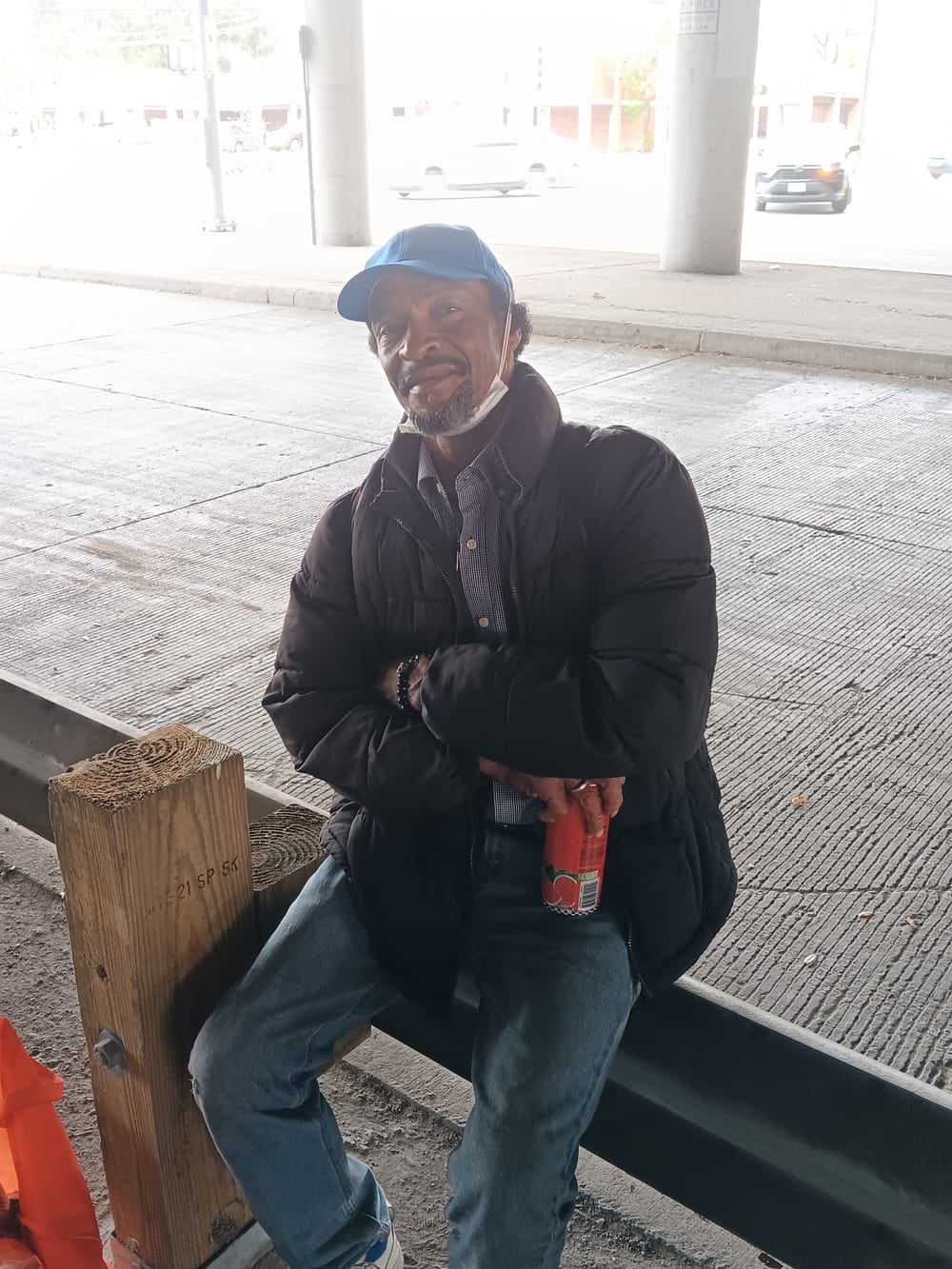
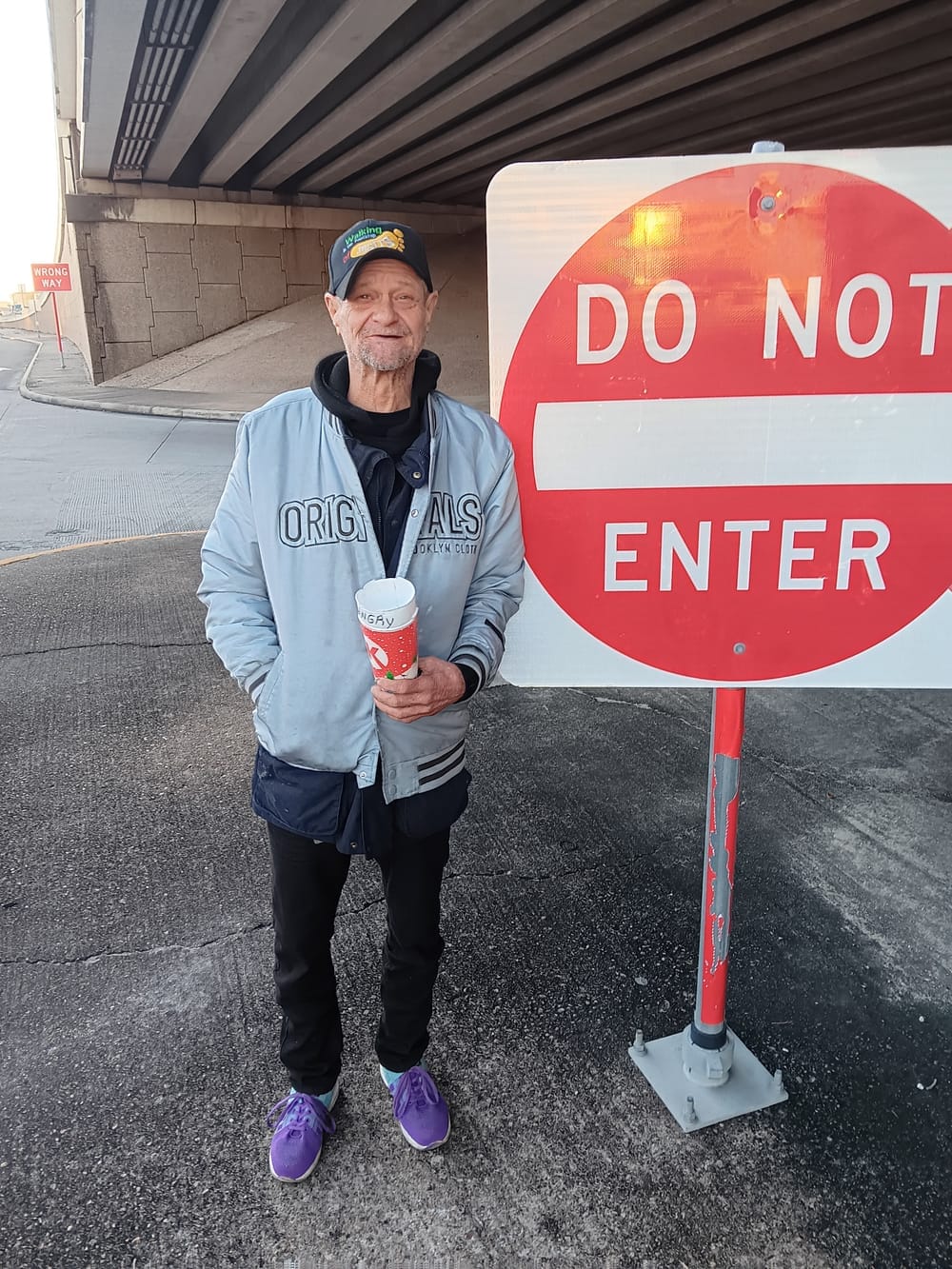
Left to right: Leroy Conner and Dale Malone
Dale starts sharing about the food truck business he wants to start once he gets off the streets. He hopes to sell brisket, sausage, ribs, chicken sandwiches, rice and beans, and more—and he wants his smoker to run 24/7.
Not long after we pass the last METRO stop, Dale thinks he spots our turn. After a maze of maneuvers, we pull up in front of a house along a curve. Dale knocks on the door.
The woman who answers doesn’t know his sister. Dale returns to the car, discouraged and wondering if she moved without telling him.
I check Google Maps and get a hunch: there’s a near-identical curve on a nearby street. We drive, and this time, Dale is sure it’s his sister’s house. He knocks.
After ten seconds or so, she opens the door, looking surprised.
At first, she says she doesn’t have his birth certificate. “I gave you that last time you asked.”
We ask if she has any documents at all.
She softens. “Let me see if I’ve got an envelope. Y’all want to come in?”
Within twenty minutes, she’s looked in three different places with no luck. She says she offered to keep a copy of his birth certificate safe for him earlier, but he insisted on having it.
But then she remembers something: when True Mental Health Services helped Dale get his driver’s license years ago, she sent them his original birth certificate. She says she never got it back.
She gives us the phone numbers for the people who helped Dale at True MHS and tells him, “I love you.”
Back in the car, we call one of the numbers. Dale doesn’t recognize the man who answers. He asks for a couple of employees, and the man replies, “They don’t work here anymore.”
Dale throws out one more name: "Does Pam still work there?" Yes, says the man, and he’ll give her Dale’s number.
While we’re waiting for the callback, we decide we might as well drive up to True MHS. Unfortunately, it’s all the way back near the northeast corner of Sharpstown.
On the way, Dale calls his insurance company. After a confusing conversation, the woman on the phone transfers him to someone more helpful.
Dale has forgotten his member ID number, but he remembers just enough of his information to get it back. The man on the phone tells him that he can get an electronic insurance card by downloading an app and creating an account.
Dale says his phone doesn’t let him install apps, but we’ll try.
First, we walk up to the office building that houses True MHS. The façade is an alternating series of tall, narrow windows and angled, brown-and-white brick fins.
After wandering the corridors inside, we find the right door. A combination lock is built into the handle, and a black curtain hangs over the inside of the glass pane. Beneath the curtain, light glimmers.
Dale rings the doorbell. There’s no answer, but someone scuffles papers on the other side.
Dale rings the doorbell again.
Still no answer.
“Hello?” he says.
A woman with magenta pigtails opens the door. She and Dale don’t recognize each other, and she says that Pam isn’t there today. But when he tells his story, she invites us in to sit on a brown leather couch. We hand her the sheet of paper from DPS.
She disappears into the back and returns with a black-haired woman toting a clipboard.
“We looked over the list, and there isn’t anything on here that we would actually have,” says the magenta-haired woman.
Dale says that his insurance company sent some of his documents to True MHS.
“If they sent it here, we don’t usually keep that,” she replies.
Defeat again.
But the black-haired woman says he can get a copy of his ID from the police station.
I’m ready to take yet another drive. Then Dale asks if he can be a mental health client again. “I had a whole team of people, and I liked that.”
The black-haired woman writes down his name and birthday and disappears into the back. While we wait, Dale and I try to set up the insurance app on his phone.
The woman returns. It turns out Dale is still in their system, and even better—“I found a copy of your ID and your social.” A printer in the room buzzes and spits two pieces of paper, and Miss Pigtails hand them to Dale.
It’s around 4 PM. The Rosenberg DPS closes at 5:30. Now we just need to make it back and hope the line isn’t too long.
And hope the documents actually work this time.
Yep, I had to end on another cliffhanger. Subscribe for free so you don't miss the next article in this series, where I follow Dale and Leroy in their quest to climb off the streets of Sharpstown. I promise that next time you'll actually find out whether Dale gets his license or not!
Miss the first article in this series? Read it here.
Conflict of Interest Statement: It should be obvious, but I take a personal interest in this story. After all, I drove Dale and Leroy to Rosenberg. I've known them for a while, especially Dale (I've spent countless hours in conversations with him over the last four years). That's why I used their first names instead of following the standard journalistic practice of using last names. I'm taking a more personal approach for this series. Both men have also attended my church—Dale on a semi-regular basis. Finally, several Christian friends and I are involved in an unofficial homeless ministry that meets on a weekly basis, and we often speak with these two men.

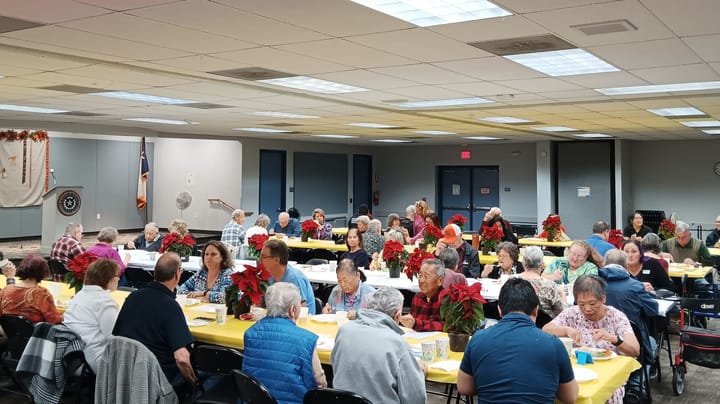
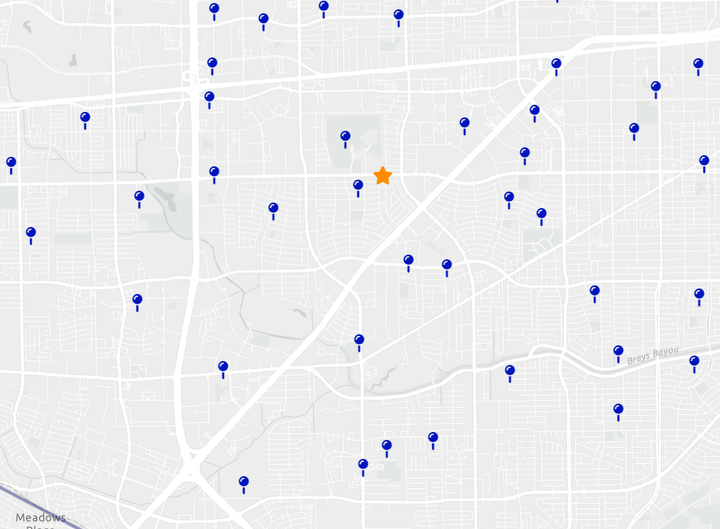
Comments ()